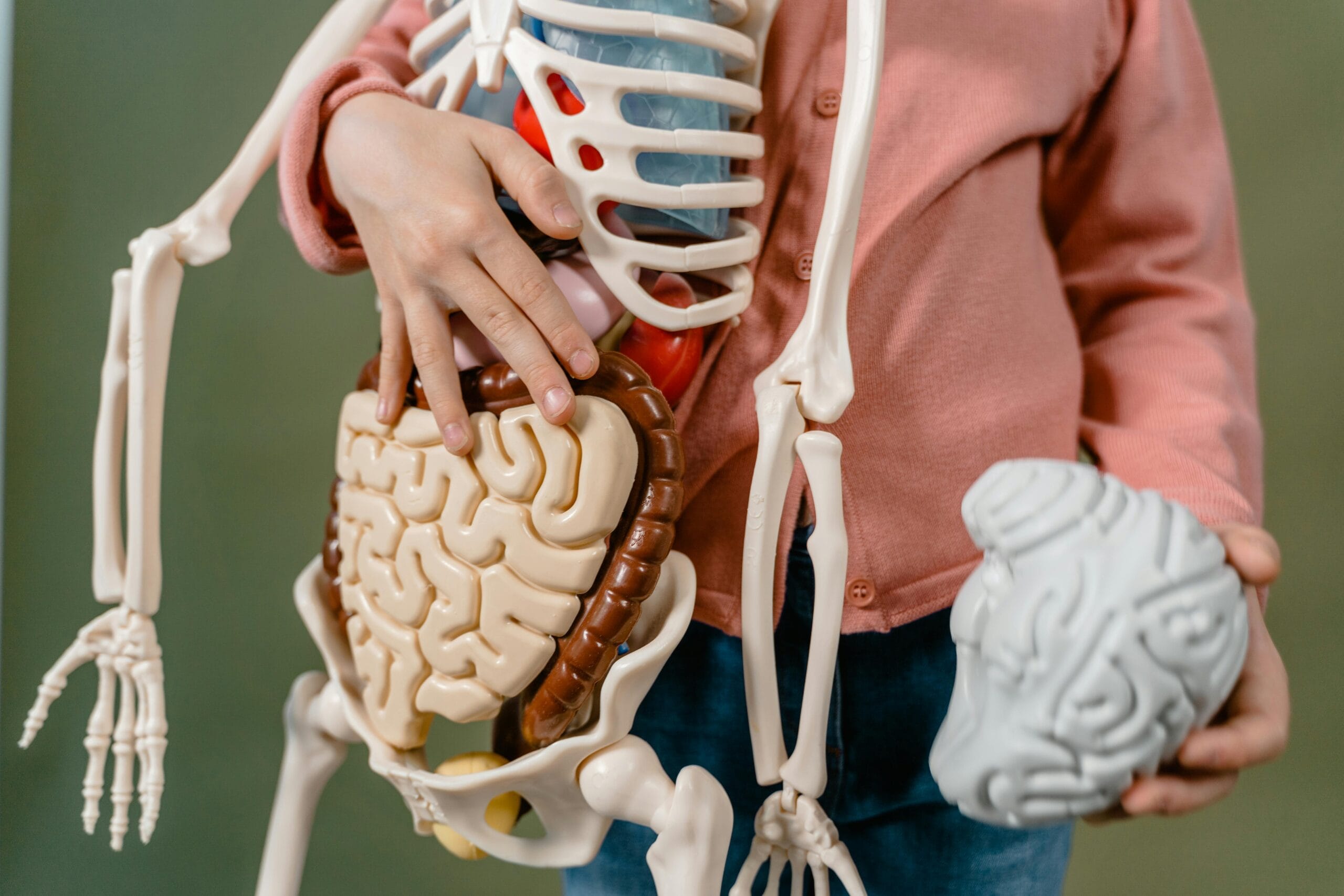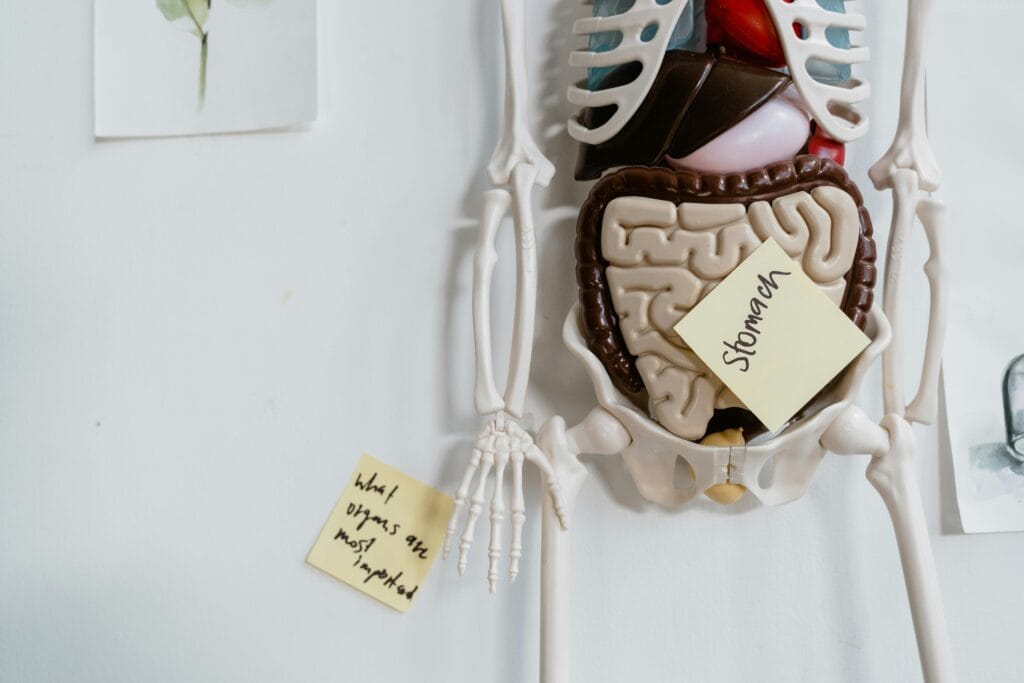
Digestive Disorders? Know the Causes and Treatment Options!

The digestive system is an anatomical body system that plays a role in processing nutrients entering the body, which serve as the basis for anabolic and catabolic processes. The digestive system includes the digestive tract, which consists of the oral cavity, pharynx (throat), esophagus, stomach, small intestine, and large intestine. Additionally, there are accessory organs, including the teeth, tongue, liver, gallbladder, pancreas, and various digestive glands such as the salivary glands.

The digestive system undergoes several stages in its process, including ingestion, mechanical processing, digestion, secretion, absorption, and excretion.
Ingestion
Ingestion, or swallowing, is the stage when food enters the oral cavity, a voluntary action that involves bodily awareness.
Mechanical processing
Mechanical processing refers to the breakdown and softening of food with the help of teeth and tongue to facilitate its movement through the digestive tract. This process also continues after swallowing, as the stomach and intestines mix and churn food to ensure it blends thoroughly with digestive enzymes.
Digestion
Digestion is the chemical breakdown of food into small organic fragments that can be absorbed by the digestive epithelium.
Secretion
Secretion involves the release of water, acid, enzymes, buffers, and salts by the digestive epithelium and glands to aid food digestion.
Absorption
Absorption is the transfer of organic molecules, vitamins, and water across the digestive epithelium into the interstitial fluid, enabling their distribution throughout the body.
Excretion
Finally, excretion is the removal of undigested food waste from the body through defecation.

Like other organ systems, the digestive system can experience functional and process-related disorders that lead to digestive diseases. Some of the common diseases affecting the digestive system include peptic ulcers, inflammatory bowel disease, irritable bowel syndrome, diarrhea, and constipation.
Peptic ulcer
Peptic ulcer is a condition characterized by sores or ulcers in the stomach lining due to an imbalance between protective factors in the gastric mucosa (such as bicarbonate, mucin, prostaglandins, nitric oxide, and various peptides and growth factors) and factors that stimulate gastric acid production, like stomach acid and pepsin, which can damage the stomach lining. Drug classes used to treat peptic ulcers include antacids, which work by neutralizing stomach acid; proton pump inhibitors and H₂ receptor antagonists, which reduce acid secretion; prostaglandin analogs and sucralfate, which protect the gastric mucosa; and antibiotics like metronidazole, tetracycline, clarithromycin, and amoxicillin, specifically for peptic ulcers caused by Helicobacter pylori infection.
Inflammatory bowel disease (IBD)
Inflammatory bowel disease (IBD) is a condition characterized by inflammation of the digestive tract, influenced by factors such as genetics, immune system response, and gut microbiota. IBD can occur specifically in the colon (ulcerative colitis) or throughout most of the large and small intestines (Crohn's disease). Drug classes used to manage IBD include aminosalicylates, corticosteroids, thiopurines, methotrexate, cyclosporine, and infliximab.
Irritable bowel syndrome (IBS)
Irritable bowel syndrome (IBS) is a functional disorder of the digestive tract marked by symptoms of digestive discomfort, such as abdominal pain, rapid bowel movements, an unsatisfied feeling after defecation, and bloating. Medications commonly used for IBS include antispasmodics, which reduce excessive bowel movements, and tricyclic antidepressants. IBS can also be managed non-pharmacologically with dietary fiber intake and adequate hydration.
Diarrhea
Diarrhea is characterized by excessive fluid in stool due to increased osmotic load in the intestines, which causes water retention in the lumen; excessive secretion of electrolytes and water into the intestinal lumen; rapid bowel movement that prevents sufficient water absorption; and protein and fluid exudation from the intestinal mucosa. Diarrhea generally results in more than three bowel movements per day. Constipation, on the other hand, is marked by decreased bowel movement frequency, difficulty passing stool, or an incomplete feeling after defecation. Treatments for diarrhea include antimotility drugs like loperamide and Imodium, and adsorbents like kaolin, pectin, and activated charcoal. Laxatives are commonly used for constipation management.
Don't neglect your digestive health! Recognize the symptoms, understand how it works, and address the issues with the right solutions. Take small steps to maintain your digestion today and enjoy a more comfortable and healthier life!
Wait for more useful articles only on the IML Testing and Research website, where you can expand your knowledge.
Author: Devira
References :
Brunton, L., Parker, K., Blumenthal, D., & Buxton, I. (2008). Goodman & Gilman’s: Manual of Pharmacology and Therapeutics. In Pharmacology & Therapeutics (Vol. 95).
Martini, F. H., Nath, J. L., & Bartholomew, E. F. (2023). Fundamentals of Anatomy and Physiology, Global Edition. In Pearson Education Limited.
Qiu, P., Ishimoto, T., Fu, L., Zhang, J., Zhang, Z., & Liu, Y. (2022). The Gut Microbiota in Inflammatory Bowel Disease. In Frontiers in Cellular and Infection Microbiology (Vol. 12). https://doi.org/10.3389/fcimb.2022.733992.



